
Performance Analysis
Firstly, we should state that with the overclocked numbers, we've retested our comparison Intel Broadwell-E CPUs to reduce their overclocked frequencies a little. Our previous numbers were on the ragged edge and probably not what you'd want for an every day overclock. While we emphasise that you will likely be able to achieve higher frequencies, we also kept our Ryzen overclock within reach of reasonable cooling too, rather than gunning for an absolute maximum with custom water cooling.There are some superb results and some not so superb results for the Ryzen 7 1800X. The issues are most likely niggles with early BIOS files and drivers, and AMD definitely does need to sort these out. Admittedly we're coming from a very streamlined and polished Intel platform, and things will be different, but whatever is reducing performance in some of our game tests needs to be sorted out.
For instance, AMD provided specific instructions about how to apply the latest BIOS. However, we had teething issues even before this was attempted, and this sort of thing just works on an Intel system - you don't need to fiddle around with sets of instructions. Also, despite loading optimised defaults and disabling simultaneous multi-threading (SMT) in the EFI of our Crosshair VI Hero motherboard, which AMD recommends, we were unable to iron out the poor runs seen in Ashes of the Singularity and some 3DMark tests. Why this should be, we're not sure, especially as other similar tests were fine - poor optimisation, maybe. However, tricky overclocking and random failed boots even at stock speed were common, and these did add a fly to the ointment of an otherwise exciting few days of benchmarking.
Where results are in AMD's favour, they're fantastic. Due to some late-arriving AMD samples, we'd initially re-tested a bunch of Intel gear at a higher 3,200MHz memory speed, but were unable to get above 2,933MHz on our AM4 system, so it went through the benchmarks at a slight disadvantage, plus our X99 test system, of course, had the memory in quad-channel mode too. Despite this, it was just a fraction behind the Core i7-6900K in the PCMark photo editing test and HandBrake video encoding test, both of which are multi-threaded. Cinebench R15 was also a fantastic result for AMD, with the 1800X scoring over 100 points more than the Core i7-6900K when both were overclocked, despite being at a 200MHz disadvantage.
At stock speed, it was faster too - admittedly, the AMD chip does have a slight advantage in clock speed - a base frequency of 3.6GHz compared to just 3.2GHz for the Intel chip, but as with all the benchmarks here, there's one huge factor to consider - price, which we'll get to in a minute.
In games, apart from our odd results that we'll put down to teething problems for the moment, the one clear result is that where the CPU doesn't count for much, Ryzen won't improve things. Take the DirectX 11-based Fallout 4, for example. We saw the same frame rates across the board, both at stock speed and overclocked. The same was true in Deus Ex, a more modern DirectX 12 title. What a lot of people have been forgetting in the furore of the last few weeks is that one reason we haven't seen newer CPUs outperform older ones in games is that most games simply don't need any more grunt, and Ryzen won't change that.
It will be very game-dependant too, but AMD does have a lead in IPC, and in many tests, even though the Intel CPUs we tested it against can be overclocked to greater heights, the 1800X is still faster. Which brings us on to the price factor.
New horizons?
We think we can call today a success for AMD. Sure, there are some teething issues to deal with, but we had the same with Intel's LGA2011 launch a couple of years ago, so we can't hold too much against the company. So, it's time to talk about what the future holds for CPUs, and there are two huge factors to consider: the ridiculously cheap price of AMD's offerings compared to Intel's, and also what the launch of Ryzen means in general.We'll start with the latter, and if you weren't buying or building systems in the 2000s, you won't have come across a time when there was a genuine choice at the high end for CPUs. Indeed, we make no apologies for not recommending many AMD CPUs for the past few years even at the low end. However, all that potentially changes today. We now have genuine choice, and it's looking like that will span from $100 up to $500 once the Ryzen 5 and Ryzen 3 series hit the shelves later this year - in Q2 and the second half of the year respectively if the latest rumours are to be believed. This will reshape the CPU landscape, but it also makes recommending Ryzen in general impossible. As with the good old days of CPU wars, things will likely come down to individual price-point comparisons, with Intel maybe winning some and AMD others. This is great news, especially for the consumer.
Price-wise, if the Ryzen 7 1800X is anything to go by, Intel has its work cut out. In many tests, it performed similarly or better than the Core i7-6900K, which is twice the price, even factoring in recent price cuts which seem to be spreading. Aside from extra PCI-E lanes for multi-GPU systems and a couple of other features, the Core i7-6900K is simply out-done by the Ryzen 7 1800X and in a massive way. It's not just vastly more expensive, it's rarely much faster, and the 1800X also showed impressive IPC and efficiency too.
There was one issue we found, though, which was in Terragen, where the CPU was under sustained multi-threaded heavy loads for a lot longer than the likes of Cinebench. We're fairly sure we saw some of the cores fall back a bit in Ryzen Master at one point. This explains the relatively poor result compared to the Core i7-6900K in Terragen 4 at stock speed, and interestingly it's the only test that failed our 4.1GHz and 4.05GHz overclocks too. Whether this was the CPU, power circuitry or some other issue, we're not sure but we'll be taking investigating further and taking a look at what kind of cooling you need to keep Ryzen in check in a later article.
Conclusion
Overall, then, the day has finally arrived that we thought would never come - a competitive CPU from AMD at the high end. There are some teething problems to get over, especially in games, and don't expect as polished an experience as you would from an Intel Z270 system right now - hopefully these things will improve as we see new drivers and BIOSes enter the fray. It's for these niggles that we've only given the Ryzen 7 1800X our recommended award - it's just not polished enough yet, at least in our experience for our top award.Overclocking was perhaps the biggest disappointment - considering the 1800X is meant to be the top-binned CPU, the fact we only got to 4GHz on all cores when pitched against some typically demanding multi-threaded workloads with pretty decent cooling did seem lacklustre compared to the 4.2-4.4 GHz everyday overclock you'd likely be able to get from an Intel six or eight-core CPU, which suggests that AMD is really having to run these chips close to their natural limits. The important thing here, though, is that even when you've overclocked your Core i7-6900K, the best advantage you'll see in many tests is still a small one over the 1800X, which costs half the price. That's stunning value in anyone's books.
However, while there have been world records broken with sky-high overclocks, if our sample is anything go by, don't expect to be getting much above 4GHz. This does make for some interesting decisions in terms of which CPU to go for too. While the Ryzen 7 1800X is obviously unlocked, as all Ryzen CPUs are, if you don't intend to overclock it, you shouldn't shy away from it like you would a K-series Intel CPU. The AMD chip is particularly sweet at stock speed too, plus you'll likely struggle to get the Ryzen 7 1700 and maybe even the 1700X to similar speeds even if you overclock them. We'll be back with a closer look at the Ryzen architecture and features, but for now: Welcome back, AMD.


MSI MPG Velox 100R Chassis Review
October 14 2021 | 15:04

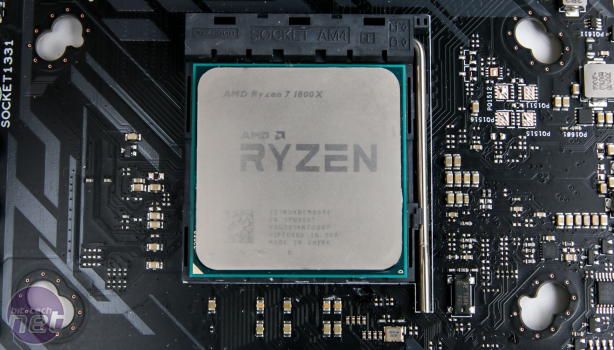
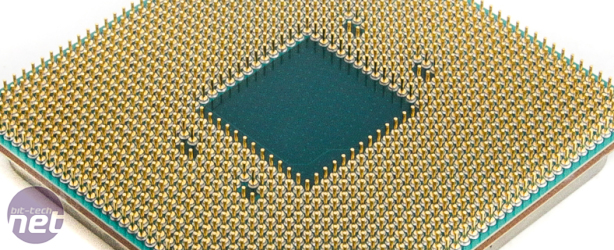
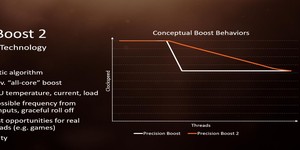
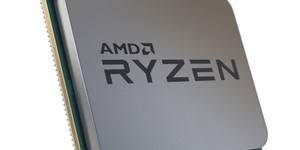
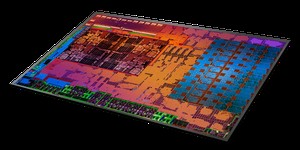




Want to comment? Please log in.